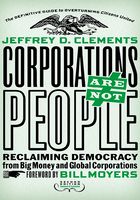
The Lost Promise of Earth Day
On that long ago Earth Day in 1970, Americans reclaimed the water, air, land, and forests that belong to all of us and to our descendants. We reclaimed the promise of government of the people, where people and our representatives would weigh, debate, and decide the balance of private and public, corporate and human. Since that spring day in 1970, we have pushed resources and the ecological systems on which life depends to the breaking point. Even as the oil, gas, and coal corporations mimic the strategy of the cigarette corporations to create a fraudulent “controversy” and “open question” about the global warming “hoax,” we have ripped past the point of no return on climate catastrophe.
Although the evidence of national and global environmental destruction at a level that will challenge our civilization and way of life is more compelling now than it was back in 1970, our leaders in government are not even debating, let alone enacting, possible solutions. Incredibly, the current debate in Congress is not what we can do to save our world but whether Congress should strip the Environmental Protection Agency of its authority to regulate pollution that causes the global climate crisis.
Corporate media might tell you that the reason for inaction is that Americans oppose environmental regulation and oppose drastic changes to address the energy and environmental crisis. Yet there is little reason to believe that this is true. In fact, try an experiment. Find a moment to talk seriously in a nonpolitical, nonconfrontational way with your friends, neighbors, or family members, regardless of what political party or philosophy they may favor. I bet that you will find that they, too, think that we cannot rely on corporations to protect freedom for us and that corporate business as usual will condemn us to disastrous energy, economic, and environmental policies and will ensure that we pass to our children a very bleak and weak nation and world.
This basic understanding of the connection between our state of decline and crisis on one hand, and our corporate-driven energy, environmental, economic, foreign, and military policy on the other, is one of the many points of consensus among the American people that the corporatist political elite ignores. According to an independent, nonpartisan 2010 Pew Research poll, for example, huge majorities of Americans favor better fuel efficiency standards for cars and trucks (79 percent), more funding for alternative energy (74 percent), more spending on mass transit (63 percent), and tax incentives for hybrid or electric vehicles (60 percent).
Similarly, for years, most Americans have supported, and still support, stronger, not weaker, environmental and energy policies. This is true even in times of recession, terrorism, and deep concern about budgets. From 1995 to 2008, when the independent multiyear Gallup poll question was last asked, through every variety of political environment, from good economies to bad, from terrorist attacks to war, the American people have been consistent in their response. More than twice as many Americans say we need “additional, immediate, and drastic action” to prevent major environmental disruption compared to those who say “we should just take the same actions we have been taking on the environment.” The percentage of those identifying a need for “drastic, immediate action” was 35 percent in 1995, 38 percent in 2007, and 34 percent in 2008. When you add in those who say “we should take some additional action,” the range of Americans who want better, stronger, tougher environmental protection stayed between 80 and 90 percent for more than a decade. The percentage of those who chose the status quo answer (“we should just take the same actions we have been taking on the environment”) ranged from 13 to 20 percent. And even after years of corporate-funded confusion and denial about the environment, the vast majority of Americans still worried about the quality of the environment (69 percent) and global warming (58 percent) “a great deal” or “a fair amount”; only 16 percent believe that our government does “too much” to protect the environment.
Polls are not infallible, but I suspect that these results would be duplicated in most family discussions around the dinner table. And I believe that we would see a similar disconnect between what people know about the state of our nation and the world and what the corporate-dominated government does. Whether the issue is the environment, the economy, the decades of wars in the Middle East, bloated military budgets, corporate agriculture subsidies and industrial food systems, or other corporate welfare, what most people think or want out of our government does not matter much anymore.
We have become accustomed to thinking that we cannot change, that our problems are too big, that our government cannot be effective. This was not always so, and it does not have to be so now. The choice we face in America now about whether to succeed or fail begins with our choice about whether we agree with Lewis Powell, the US Chamber of Commerce, and the corporate rights movement that massive, global corporate entities are the same as people.